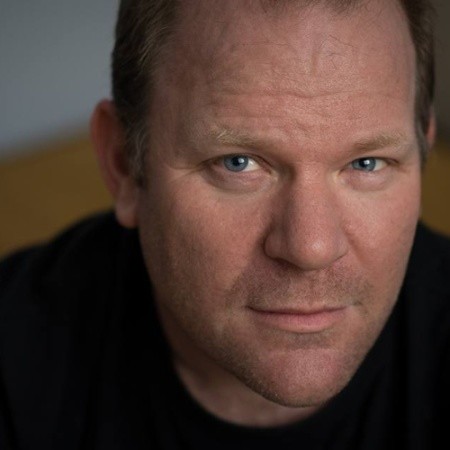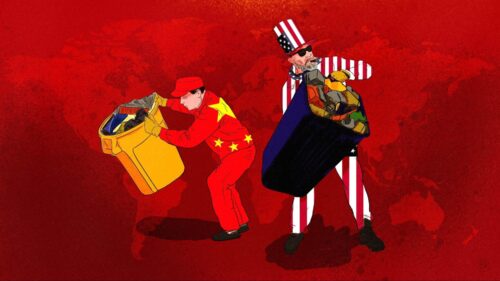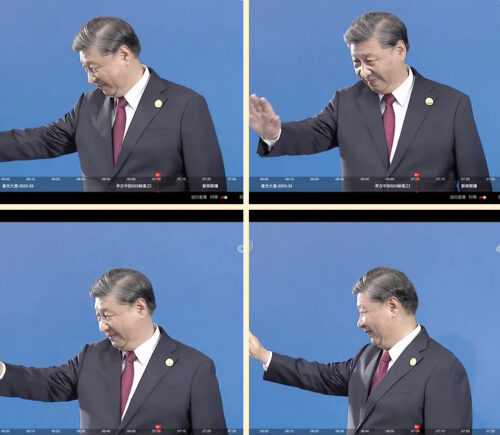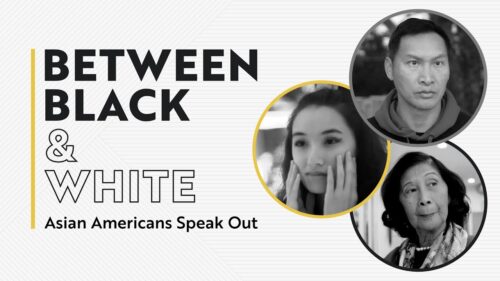After latest blackface incident, Africans in China grow weary of racial insensitivities
"It feels like a slap in the face." Runako Celina and Seron Tamerat, two of the managers of Black Livity China, react to the latest in a series of incidents of anti-Black racial insensitivity in China.
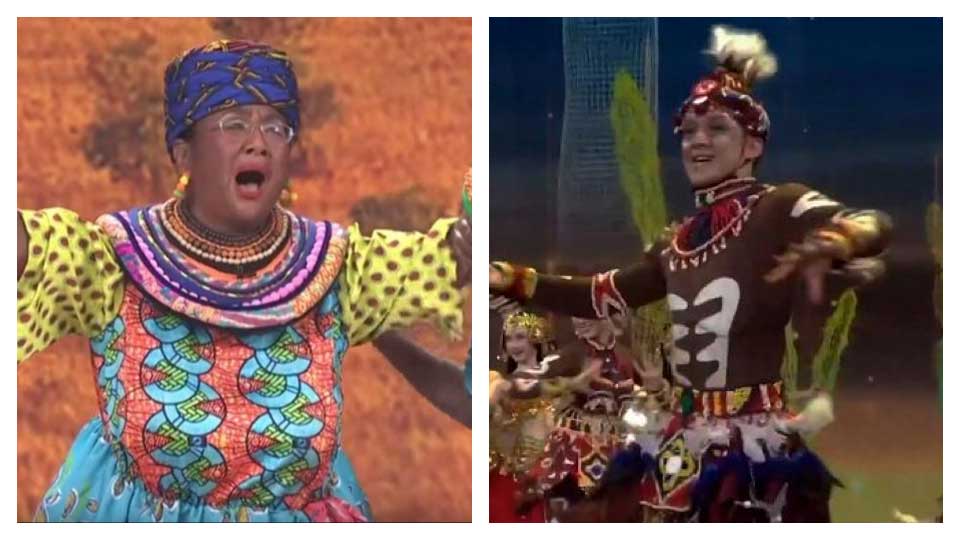
Last Thursday’s blackface episode on CCTV’s hugely popular Spring Festival Gala TV show is just the latest incident of anti-Black racial insensitivity in China that’s prompting mounting frustration within the African expatriate community in China and the diaspora population abroad.
There’s a feeling that it’s been one thing after another in just the past few years alone — from a similar blackface performance in 2018 to a Star Wars poster where Nigerian-born star John Boyega’s image was reduced to the hostility towards mixed-race Sino-Congolese entertainer Zhòng Fēifēi 仲菲菲 to last year’s discrimination against Black and African residents in the southern Chinese city of Guangzhou. And that’s only a partial list.
For some perspective on the African community in China’s response to what happened, Eric Olander, managing editor of The China Africa Project, spoke with Runako Celina and Seron Tamerat, two of the managers of Black Livity China, a popular digital platform dedicated to exploring all aspects of the African community in China. Both Runako and Seron responded to questions via WhatsApp and their answers were lightly edited for clarity.
Eric Olander: Following the 2018 blackface episode on the CCTV Spring Gala program, you wrote an article that was translated into Chinese and read by the network’s producers. It seemed that they got the message but apparently not entirely. How do you explain how something like this could happen twice?
Runako Celina: I think this is one of the main reasons for the frustration. Back in 2018, we wrote an essay on [the use of blackface in the CCTV Spring Gala] that was translated into both Chinese and French. It was republished by quite a big Chinese platform and someone working pretty high up in CGTN reached out to us and we’re really pushing for a conversation to happen and for the piece to be published on CGTN, although it would have been edited, but that never ended up happening.
It doesn’t seem to be there have been many lessons learned since the first time this happened when it comes to racist or insensitive incidents like these that happen with Black communities and that’s because there isn’t ever really a commitment at the hands of those who do have the power to enact change to ensure these things don’t repeat. It’s very much the “wrong and strong approach” and this seems to be the case in several instances, even if we go back to Guangzhou when no public apology was made [for the well-documented instances of anti-Black discrimination that occurred in April 2020].
I really wish it could be put down to a lack of understanding and if it is a lack of understanding, still after three years or possibly more, it’s really a willful lack of understanding, willful ignorance if you like, because it’s not like there aren’t resources out there, [even] in Chinese and it’s not like there haven’t been attempts to open a discussion and essentially give free education to those in power.
One thing I found particularly concerning about the 2018 incident, which doesn’t seem to be the case this time, although I’ll look into that, is that StarTimes, which you know is one of the big privately-owned media companies in African countries, was very closely tied to producing that gala sketch. You know, they appeared in the credits and also having worked there I noticed some familiar faces backstage putting it together. [So], to me that level of ignorance it doesn’t just impact the experience of [the Black] community in China, it has ramifications for what Chinese approaches will be and what’s understood to be appropriate when they engage our communities at home — you know, whether that’s in the African continent, the diaspora, etc.
If these points of ignorance and racism are not cleared up here in China, it’s going to have a knock-on effect elsewhere and that’s why I think it’s so important and many people feel the same. There is a feeling of like just “same sh*t different day,” essentially, amongst the [Black and African community] and it’s like there’s been so much happening… people are still just getting over Guangzhou, many people haven’t, so when something like this happens it’s like… [sigh]… is the energy really there? Even for us, we feel very tired, to be honest. It’s like really? Again?
Eric: Do you think it’s that CCTV’s producers don’t understand just how offensive blackface is and the historical weight that it has or that they don’t really care because they’re serving an audience that isn’t sensitive to this kind of issue?
Runako: We have seen very high profile, well-known people of African descent perform on CCTV before, so they know there are African performers who could have done performances just like this, just as well. So there are a few things that they know. Yes, they know their audiences are not really offended by this. Should they be? Do they want to prepare their audience for China to be more considerate for the people they’re interacting with around the world? And the fact that people are tuning in who are not just ethnically Chinese. I don’t know. But again, they know multiple things… so, I find it hard to excuse it as simple ignorance and if it is ignorance, again, then I would say it’s willful ignorance.
Eric: What has been the reaction to the program within the Black and African diaspora communities both within China and internationally?
Runako: Our communities are very sensitive to the fact that whenever anything racist happens in China, everyone jumps on it. There have been attempts to solve this [with those] in China — maybe it’s our professors who have ties or the actual people working at CCTV or CGTN going directly to them and trying to resolve it that way — but what seems to happen, such as the Guangzhou incident as an example of this, is that until international pressure comes or international shame, if you like, is it really taken seriously?
“There is a feeling of like just “same sh*t different day,” essentially, amongst the [Black and African community] and it’s like there’s been so much happening… people are still just getting over Guangzhou, many people haven’t, so when something like this happens it’s like… [sigh]… is the energy really there? Even for us, we feel very tired, to be honest. It’s like really? Again?”
When we host conversations and dialogues about this and try to engage Chinese counterparts whether they’re in the diaspora or at home, and when we try and relate it to our community, some of the responses, not all but certainly some people feel like “what’s the point?” At this point, some people feel tired of having this discussion again and again and they want to circumvent that step and go straight to the international [media] because what we saw, or what we feel like we saw in the Guangzhou incidents, is when people on the ground were complaining about what happened, nothing was really done until the first Western article written about it on CNN [by Jenni Marsh] and that’s what it took [to motivate Chinese authorities to respond]. I think what really needs to happen is that concerns such as these are taken seriously as this would help China’s image more than anything and the restoration of what it lost in the eyes of many people of African descent in both China and in the diaspora elsewhere. It would redeem a lot of its reputation if it took these things seriously and stopped being “wrong and strong” about even things like this.
Do I expect that to happen? No… not really judging by the seven years of experience I have in China but it would be nice and, again, it would help — what’s it “win-win,” right? Like it would help everyone if that was the case: China’s reputation, our comfort as a community, and it would help put to rest and ease some of the suspicions that our communities have when we think about what Chinese media platforms will be relaying to our communities at home because we know if they can get it right on their own soil, then they will be more likely to get it right when they interact with our communities at home.
Saron Tamerat: A lot of the members of the African Students Association from my school posed the question on WeChat, “why do they not want to give African performers the platform?” Because, as Runako said, CCTV has previously had African performers on-air, so the question they (the students) posited was, “why on this particular event, especially one that is so big like the New Year’s Gala, would they not want to give a platform to actual African performers who speak the language, who know the culture, who would do the performance more justice. [Some people suggested that] it could be that Chinese people are averse to seeing Black representation and then a lot of people were linking it to the John Boyega incident in terms of Star Wars where his character was shrunk down in the poster and they were saying “it’s the same thing!” They would much rather have a Chinese person do blackface rather than to actually confront having to look at African people represented on screen.
Another thing that a lot of people within the African community in China have been saying is how long will [this kind of thing go on for?] A mistake happens and it’s just glossed over or it’s not really addressed like the Guangzhou incident when that happened and there was no satisfactory apology given and they moved on. And then this incident (blackface) previously happened and that wasn’t addressed and then this incident has happened now and, as far as I know — and I might be mistaken — I don’t think CCTV has said anything about it. So, a lot of people are asking, “how long is China going to keep getting away with things like this?” Because it really does add up and, for a lot of people, it feels like a slap in the face. And one other argument that someone said was China is really trying to position itself as a global leader, especially in Africa, so how are you really going to position as that leader when you don’t really understand the significance, the history or the connotation related to the things you do or the mistakes that happen? Or, if you’re not taking steps to correct those mistakes, then how’s that going to work?
So, these are just some of the conversations that we’ve had within the community [over the past few days].
Runako Celina is a journalist and the co-founder of Black Livity China, a platform that documents the experiences of Africans and people of African descent in China and in relation to China. She holds an MA in International Politics and African Studies from Peking University and spent two years working for Star Times and TCL in Beijing where she has lived and resided for the last 7 years.
Saron Tamerat is the co-manager of Black Livity China. She studied Economics and graduated from South China University of Technology. She has resided in Guangzhou for 5 years where she worked with the Africa-Guangdong Business Association.

